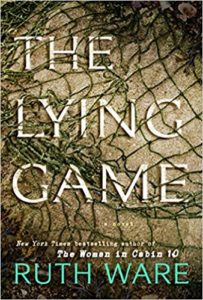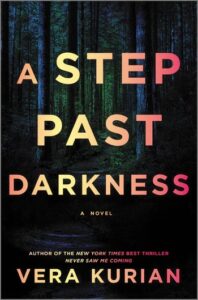Secrets sell books. Well, mystery books at least. If the blurb promises a really juicy secret, something that has the potential to blow-up a life, a family, a suburb, a town, then I know I’ll want to read it.
In real life, I’m much more nervous to hear a secret. What is the saying? Two can keep a secret if one of them is dead? If that were true I’d be in big trouble. People like to tell me things, I must have one of those faces. But I often do my best not to be taken into their confidence. Secrets, like shame, can burn inside you.
When I started writing my novel The Ones We Love, it was all from 22-year-old Olivia’s perspective. She’s an Aussie who has just moved to Los Angeles with her family. She goes to a party and wakes up the next morning with no memory of what happened the night before, just a black eye, parents that are acting strangely and a padlock locking her out of her bedroom. She realizes she’d done something horrifying, but doesn’t remember what.
Originally, my novel was just about Olivia finding out what happened that night. Her parents and her brother were secondary characters, blocking her in her quest to find the truth. But as I wrote I became more and more interested in the rest of the family. How was holding this secret affecting them? How was guilt corroding their ability to be present, to sustain a relationship, to not totally self-destruct? I began writing from each of her family members’ points of view and set out researching the psychological effects of long term guilt: like self-punishment to even the score and intense paranoia. I read every book I could find on the weight of a shared secret. Here are my top picks:

The Secret History, by Donna Tartt
The classics group of Hampton College are an arrogant, elusive club that believe they can get away with anything. But as the snow melts in the mountains of rural Vermont revealing a body, they begin to understand the gravity of their situation.
There’s something timeless about Donna Tartt’s storytelling. The elite private college, gothic edge and meditations on Greek mythology have made it a literature classic and a touchstone of the modern fixation on dark academia. But it’s the way Tartt explores the psychology of groupthink and the gnawing depth of guilt that has made it one of my all-time favorite novels.

The Ledge, by Christian White
Oscillating between a hiking trip in 1999 and the discovery of bones at the bottom of a cliff in the present day, The Ledge follows a group of friends who share a heavy secret. I loved the dynamic between the friends and the way long term guilt affected their relationships and their identities. The novel is told from multiple points of view, which highlights the way we each remember traumatic events in different ways and have different interpretations of the same experience. It also creates a thrilling experience for the reader as we piece together the truth.

Ghost Story, by Peter Straub
I won’t lie, I bought this book solely because Stephen King said in an interview it was the scariest book he’d ever read. While some parts haven’t aged well culturally, the writing is divine and I adored that the central group of characters were elderly. Set in a small, snowy North Eastern town, full of quiet streets and large decaying houses, the story follows a group of men in their seventies who meet regularly to tell each other ghost stories. However, the group has hidden a guilty secret from their youth that they’ve never taken responsibility for, and it literally returns to haunt them. Stephen King was right, this book is terrifying!

The Lying Game, by Ruth Ware
Like Ghost Story, The Lying Game revolves around a group who tell stories. But instead of elderly men they are teenage girls, and rather than telling the stories to one another, they are telling them to other people. The titular ‘lying game’ is about competitively using their powers of deception and manipulation to convince others of outrageous stories. The game culminates in a dramatic act of violence and the girls make a pact to protect one another and never reveal the truth of what happened. But, of course, bodies don’t stay buried in mystery novels and almost two decades later the secret they’ve kept is revealed.

I Shot the Devil, by Ruth McIver
Five teenagers go into the woods one night. Three make it out. Two decades later, down-and-out journalist Erin Sloane is asked to write a story about the case that created a media storm of satanic panic. But Erin knows more than anyone that the truth of what happened has never come to light. She was there that night herself. This novel is a masterclass in the way a shared secret can become a suffocating force and how it can shape the decisions you make and the way you see yourself. McIver is a phenomenal writer and this was only her debut. Her second novel, The Sound, is out in just a few months!

A Step Past Darkness, by Vera Kurian
Like McIver’s novel, A Step Past Darkness follows a group of teenagers whose night of partying goes terribly wrong. But in Vera Kurian’s novel, the group of six very different high school students are witnesses, not perpetrators. In the summer of 1995 they attend a party in an abandoned coal mine and witness a shocking tragedy that they promise to never speak of. But the stress of staying silent boils over after twenty years, and after one of their own is killed they must return to the mine and face the truth. Kurian expertly bends genre here in ways that allow for fascinating and unique explorations of guilt, shame and shared trauma.

The Likeness, by Tana French
This Irish detective novel is pure bliss! Detective Cassie Maddox goes undercover in a crumbling mansion in a tiny town where a group of young academics live together. She is pretending to be a student with whom she shares a distinct likeness, who was found dead near the house. This book is almost an invert of my previous recommendations. While those novels show us the dynamics of the group and slowly reveal the crime they are hiding, The Likeness describes the basics of the crime up front then slowly reveals the group dynamics behind it. The reader isn’t sure who of these housemates are responsible and in what way. We see their guilt and the weight of their secret from the outside as Cassie infiltrates the group and uncovers the twisty truth.
***


















